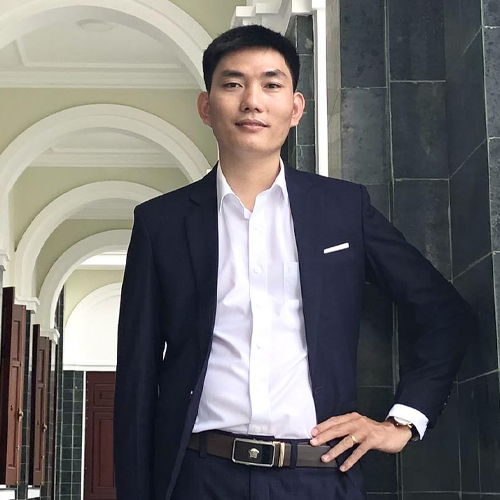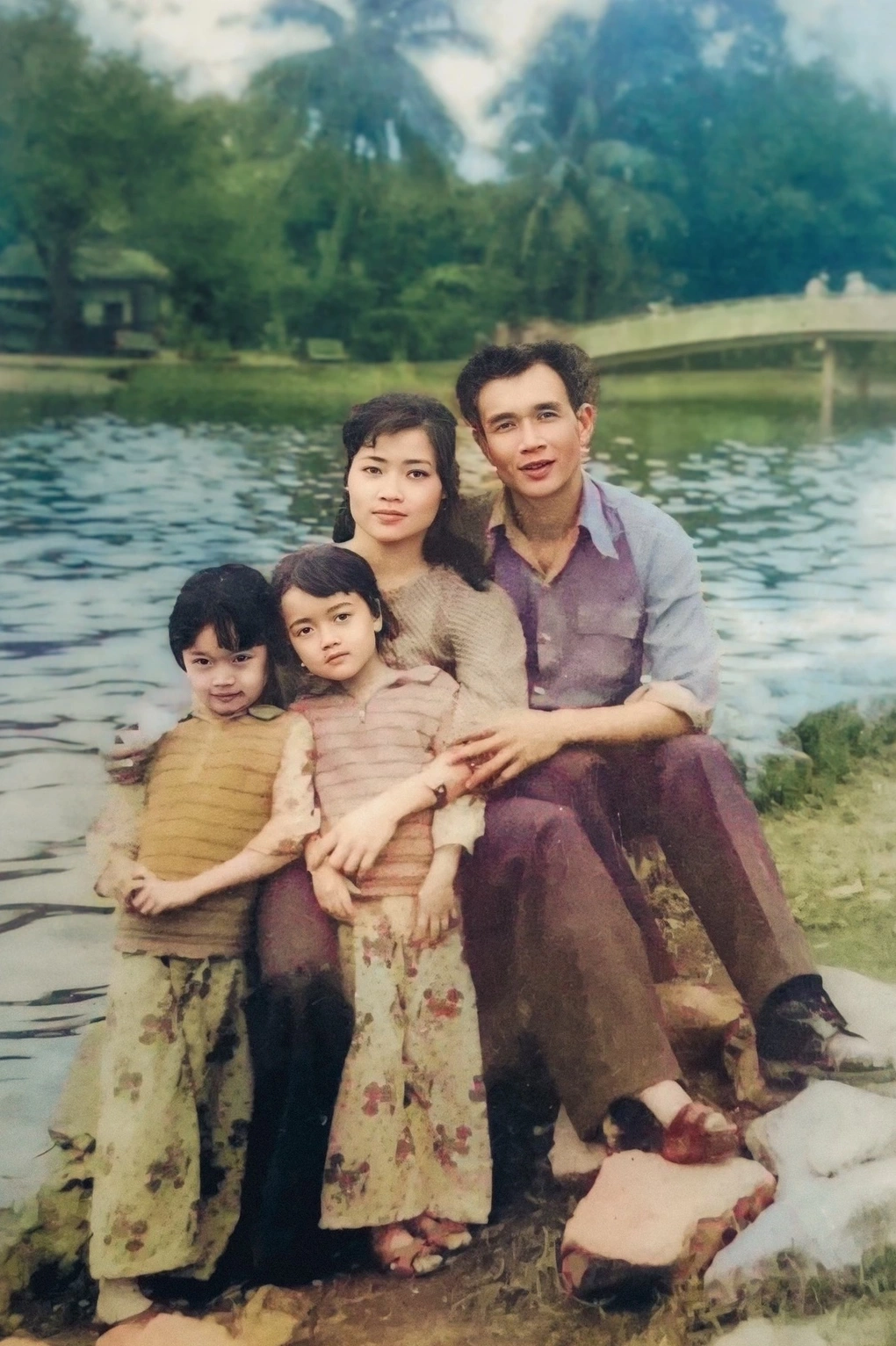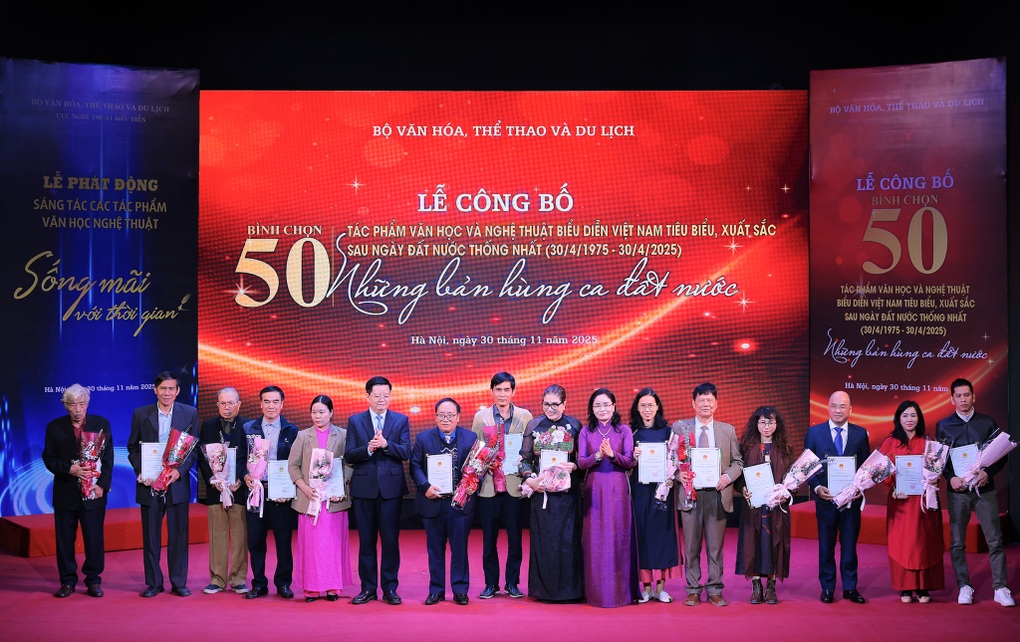Không sao cả is a song by 7dnight - a member of BigTeam - performed in the Breakthrough round of Rap Viet season 4. The catchy 30-second music segment with the lyrics "Gwenchana ding ding ding ding ding" from Không sao cả has unexpectedly created a global phenomenon in the past month.
After the success of "See tình" by Hoàng Thùy Linh, once again, a Vietnamese song has been covered by numerous international stars such as The Black Label Somi and Karina (aespa), Enhypen, Ateez, Seventeen, Jeon Somi...
So, what is the reason that just a single lyric can cause such a frenzy, prompting many international stars to join the trend?

"Không sao cả" by 7dnight "hits" TikTok and sets many impressive records (Photo: Producers).
Speaking to Dân trí reporter, rapper Hà Lê believes that the reason the music segment "Gwenchana ding ding ding ding ding" in Không sao cả has become so famous is first originated from the phrase "Gwenchana" that was already trending on social media prior to this.
This phrase came from a Korean drama, then was used by many people as a trend and humorously edited.
"In addition, in my opinion, the music segment written by 7dnight - someone who has lived and worked in Korea for some time - becomes even more meaningful and familiar than anyone else.
When 7dnight integrates "Gwenchana" into the song Không sao cả with a catchy, attractive, easy-to-remember and easy-to-learn melody, along with a very naive yet funny dance, it also becomes a factor for the music segment to spread easily," the male rapper said.
Similarly, musician Trường Giang also expressed that music knows no boundaries but is a common voice. When a music segment sounds good, catchy, with simple yet captivating dance moves, it is very easy to spread and create a cover trend.
Sharing from a media perspective, expert Hồng Quang Minh stated that Không sao cả is a typical example of how platforms like TikTok can create a cultural explosion, where the spreading factor is more important than the complete song itself.
According to this expert, the first factor to consider is the melody and rhythm of the music segment that is very addictive. The phrase "Gwenchana ding ding ding ding ding" has a repetitive, easy-to-remember rhythm, similar to an earworm.
Additionally, the combination of "Gwenchana" (it's okay) - a familiar term to K-pop fans (fans of Korean pop music) - and the rhythmic behind it has created an attractive effect like the iconic hooks in songs by Psy, Crayon Pop, or even Baby Shark.
Secondly, the dance moves in the song are simple yet encourage participation. The hand gestures are easy to perform, slightly humorous, and easy to imitate, which is the determining factor for its spread. Similar to "See tình", or on a broader scale, "Gangnam style", a dance move can become a global trend if it's easy to remember and perform.
Thirdly, it's the cultural intersection. The music segment contains the Korean term "Gwenchana" but comes from a Vietnamese singer, sparking curiosity. This also aligns with the Asian Pop trend, where the Asian market likes entertainment-oriented songs, not heavy on content but focused on emotions.
Lastly, the TikTok algorithm and the viral effect. Mr. Minh analyzed that TikTok prioritizes short, catchy content that can be easily integrated into other videos. When a video reaches a certain level of popularity, it doesn't just stop at TikTok but spreads to Instagram Reels, YouTube Shorts, Facebook.
Regarding international stars jumping in and using the background music Không sao cả, expert Hồng Quang Minh explained that TikTok prioritizes content that is easy to spread. When a trend reaches mass adoption, it will appear on the FYP boards of many international artists.
Mr. Minh said, K-pop stars often update TikTok trends to maintain interaction and connect with fans. Songs that spread strongly in Asia, especially with a Korean element like "Gwenchana", are more likely to catch the attention.
The phrase "Gwenchana" has led many viewers to think that this is a Korean song. This inadvertently stimulates curiosity and is easily accepted by K-pop idols.
K-pop artists tend to respond to trends in Asia, especially when it's rising in markets like China, Southeast Asia...
"Due to the competitive environment of K-pop girl groups, aespa, Le Sserafim, NewJeans always update trends to maintain coverage on social media. Interaction with fans is an important strategy, and covering a hot trend is a simple way to maintain recognition.
Previously, many K-pop stars in particular and international stars have also embraced Vietnamese songs such as: See Tình (Hoàng Thùy Linh), Hai phút hơn (rapper Pháo) or Hạ còn vương nắng (DatKaa, Kido)", the expert shared.

7dnight (left) and Coach BigDaddy at "Rap Viet" season 4 (Photo: Producers).
Regarding some netizens' belief that the song Không sao cả only became popular because of the Korean phrase "Gwenchana" and many international audiences mistaking it for Korean music, musician Trường Giang commented: "Essentially, our Vietnamese language is not widespread worldwide. Therefore, people are attracted to a catchy music segment not based on the culture of that country or the song's lyrics but because that music segment itself has to be good, catchy, and something special."
According to the musician, the confusion of culture or Korean music is not as important as the spreading of the song. When people delve deeper, Vietnamese music can reach the world in this way or another way.
With things like this, Trường Giang believes that instead of dissecting specifics, we should applaud more.


 Hà Khương
Hà Khương






